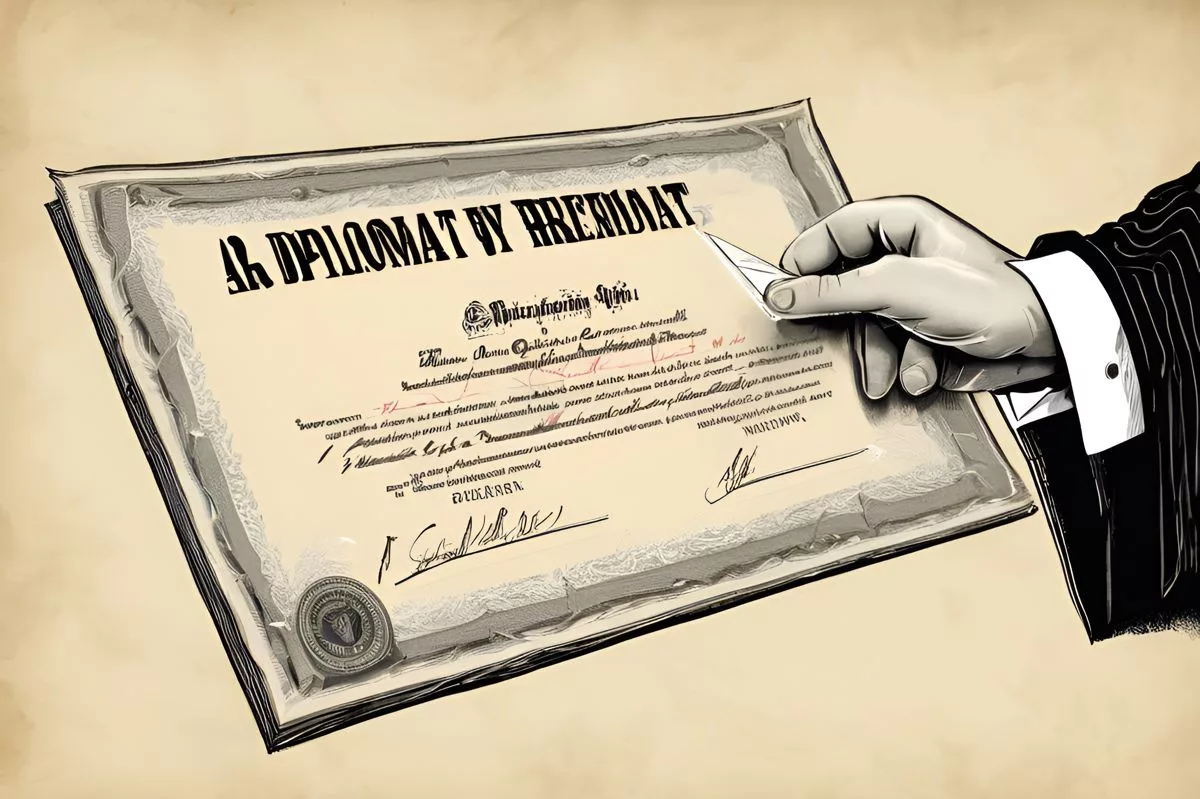Daniel Mthimkhulu, the ex-Head of Engineering at the Passenger Rail Agency of South Africa (PRASA), was sentenced to 15 years in prison for three fraud charges. Mthimkhulu claimed to hold prestigious engineering degrees but only had a matric certificate, yet held his position for 63 months and earned over R7 million. His deceit caused damage to PRASA’s reputation and resulted in enormous costs to taxpayers due to the procurement of trains that exceeded height limits. The incident serves as a warning to prioritize honesty and integrity in professional pursuits.
What was the scandal at the Passenger Rail Agency of South Africa (PRASA)?
The scandal at PRASA involved the ex-Head of Engineering, Daniel Mthimkhulu, who was sentenced to 15 years in prison for three fraud charges. He claimed to hold prestigious engineering degrees but only had a matric certificate, yet held his position for 63 months and earned over R7 million. His deceit caused damage to PRASA’s reputation and resulted in enormous costs to taxpayers due to the procurement of trains that exceeded height limits. The incident serves as a warning to prioritize honesty and integrity in professional pursuits.
Daniel Mthimkhulu’s Downfall
In a shocking account of fraud and exploitation, Daniel Mthimkhulu, the ex-Head of Engineering at the Passenger Rail Agency of South Africa (PRASA), has been sentenced to a severe 15-year incarceration term for three fraud charges. This scandalous incident, unfolding like a gripping plot from a movie, demonstrates the extreme extent to which an individual can lower themselves for personal advantage.
On April 1, 2010, Mthimkhulu was appointed PRASA’s Head Engineer, a position that had rigorous prerequisites, including, at a minimum, an engineering diploma or degree. With an attractive resume, Mthimkhulu claimed that he held a national diploma in mechanical engineering from Vaal University of Technology, an engineering degree from the University of Witwatersrand, and a doctorate in engineering management from the Technical University of Munich, Germany. However, it was later discovered that Mthimkhulu’s actual qualifications were far less impressive, being nothing more than a matric certificate.
Despite the deceit, Mthimkhulu retained his unrightfully acquired position for an astonishing 63 months. Within this period, he gathered an additional R7,072,281.04, leading to a significant monthly wage of R112,258.43. He further complicated this complex deception by persuading Lucky Montana, PRASA’s then-CEO, through a fake letter, which falsely offered him a position as an Engineering Services Specialist at the German company, DB Schenker.
Elaborate Deception and the Aftermath
The fabricated letter conveyed that Mthimkhulu was being offered an annual salary of €200,000 (R2,800,000 then). In response, PRASA, to retain him, counter-offered by nearly doubling his previous remuneration from R1,650,000.
Four years earlier, Mthimkhulu confessed to eNCA that he had falsely claimed his qualifications. He acknowledged, “I admit that I do not have a Ph.D., and I failed to correct the perception that I have it. I just became comfortable with the title. I did not foresee any damages as a result of this.” However, this admission was too little, too late. The harm had already been inflicted.
In January 2022, Mthimkhulu was charged on nine fraud counts for misrepresenting his qualifications to PRASA, leading to a wrongful increase in Mthimkhulu’s annual salary from R1.6 million to R2.8 million as the Executive Manager of Engineering Services.
Legal Consequences and Impact on PRASA
When the law began tightening its grip, the Asset Forfeiture Unit intervened and confiscated Mthimkhulu’s assets in March, recovering over R5.5 million generated from the fraudulent salary hike. Ultimately, on Tuesday, he was presented with a 15-year prison sentence for direct imprisonment on three fraud charges in the Johannesburg Specialised Commercial Crimes Court.
Senior State Advocate Sithembiso Bhengu stressed the damaging effects of Mthimkhulu’s fraudulent actions on average South Africans who missed out on potential benefits due to the funds he dishonestly extracted from PRASA. His deception also inflicted significant damage to PRASA’s reputation.
“This sentence sends a clear message to would-be fraudsters that falsifying qualifications is not a victimless crime and will not be tolerated. Mthimkhulu’s involvement placed PRASA’s projects under considerable risk and exposed the agency to unforeseen liabilities,” remarked Acting Cosatu spokesperson Zanele Sabela.
Beyond Personal Gain: The Consequences of Mthimkhulu’s Actions
However, the implications of Mthimkhulu’s wrongdoings went beyond personal enrichment. He was integral in the procurement of trains that exceeded the height limits for South African train stations and tracks. The subsequent rectifications will result in enormous costs to taxpayers. The additional expenditures and subsequent delays in the rollout of new trains will create significant disruptions for workers and the economy, which urgently needs an efficient and affordable commuter rail network.
In the aftermath of this shocking scandal, a bitter realization is the ruthlessness some individuals can exhibit to satisfy their unchecked ambitions. This incident, thus, serves as a severe warning to those contemplating similar actions in the future, emphasizing the importance of honesty, integrity, and transparency in all professional pursuits.
1. Who is Daniel Mthimkhulu?
Daniel Mthimkhulu is the ex-Head of Engineering at the Passenger Rail Agency of South Africa (PRASA) who was sentenced to 15 years in prison for three fraud charges.
2. What was Mthimkhulu’s deception?
Mthimkhulu claimed to hold prestigious engineering degrees but only had a matric certificate, yet held his position for 63 months and earned over R7 million. He further complicated this complex deception by persuading PRASA’s then-CEO through a fake letter, which falsely offered him a position as an Engineering Services Specialist at the German company, DB Schenker.
3. What was the impact of Mthimkhulu’s fraud?
Mthimkhulu’s deceit caused damage to PRASA’s reputation and resulted in enormous costs to taxpayers due to the procurement of trains that exceeded height limits. The subsequent rectifications will result in enormous costs to taxpayers.
4. What were the legal consequences faced by Mthimkhulu?
Mthimkhulu was charged on nine fraud counts for misrepresenting his qualifications to PRASA, leading to a wrongful increase in Mthimkhulu’s annual salary from R1.6 million to R2.8 million as the Executive Manager of Engineering Services. He was presented with a 15-year prison sentence for direct imprisonment on three fraud charges in the Johannesburg Specialised Commercial Crimes Court.
5. How did Mthimkhulu’s actions impact ordinary South Africans?
The funds Mthimkhulu dishonestly extracted from PRASA could have been used to benefit average South Africans, resulting in missed opportunities for improvement. Additionally, the procurement of trains that exceeded the height limits for South African train stations and tracks caused significant disruptions for workers and the economy.
6. What lessons can be learned from this scandal?
This incident serves as a severe warning to those contemplating similar actions in the future, emphasizing the importance of honesty, integrity, and transparency in all professional pursuits. It is essential to prioritize these values to avoid harming institutions, individuals, and society as a whole.












